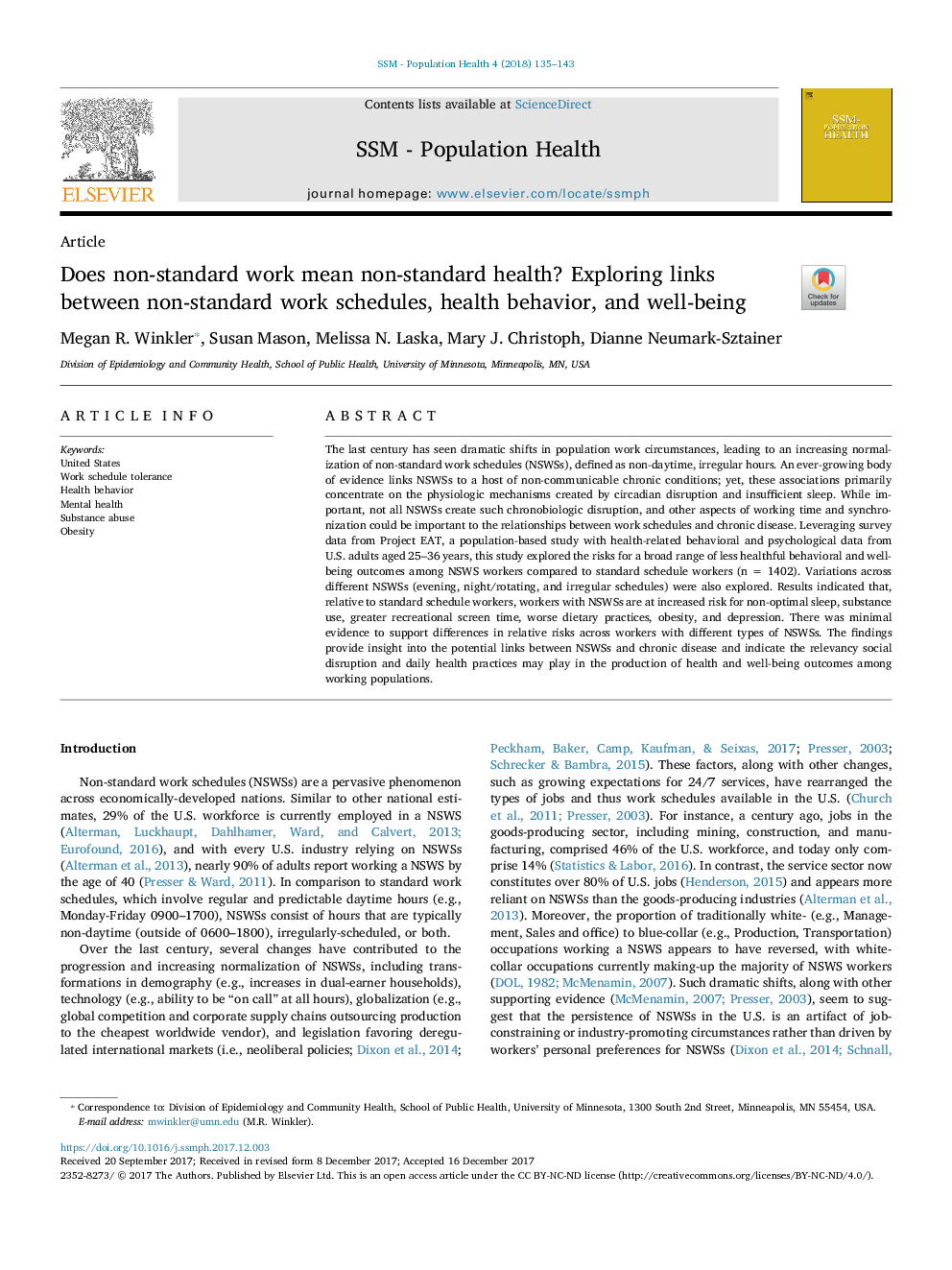ترجمه فارسی عنوان مقاله
آیا کار غیر استاندارد به معنای سلامت غیر استاندارد است؟ بررسی ارتباط بین برنامه های غیر استاندارد کار، رفتار بهداشتی و رفاه
عنوان انگلیسی
Does non-standard work mean non-standard health? Exploring links between non-standard work schedules, health behavior, and well-being
| کد مقاله | سال انتشار | تعداد صفحات مقاله انگلیسی |
|---|---|---|
| 133116 | 2018 | 9 صفحه PDF |
منبع

Publisher : Elsevier - Science Direct (الزویر - ساینس دایرکت)
Journal : SSM - Population Health, Volume 4, April 2018, Pages 135-143
ترجمه کلمات کلیدی
ایالات متحده، تحمل زمان کار، رفتار بهداشتی، سلامت روان، سوء مصرف مواد، چاقی،
کلمات کلیدی انگلیسی
United States; Work schedule tolerance; Health behavior; Mental health; Substance abuse; Obesity;

